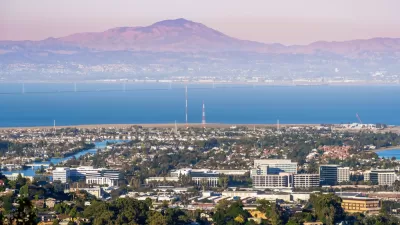In 2015, the U.S. Census made some changes to its methodology for estimating city populations. The city of Ralston, a suburb of Omaha, provides a case study for the effect of the changes.
"The latest batch of U.S. Census Bureau estimates came with a surprise for landlocked Ralston: The Omaha suburb was No. 2 on the list of the 10 fastest-growing cities in Nebraska," reports the BH Media New Service for the Ralston Recorder.
But there's a catch, according to David Drozd, research coordinator for the Center for Public Affairs Research at the University of Nebraska at Omaha.
The sudden appearance on the list is because of a Census Bureau mistake, he said. More specifically, it’s because in correcting a different mistake, the Census Bureau inadvertently created a new mistake in Ralston’s population estimate.
The mistake arises from changes made by the Census Bureau's to the methodology of its population estimates. In 2015, the Census Bureau realized it was realizing too much on building permits to calculate populations.
For more on the most recent release of the population estimates, read Planetizen's round up of news on the data release.
FULL STORY: Ralston's population boom turns out to be just a Census Bureau glitch

Maui's Vacation Rental Debate Turns Ugly
Verbal attacks, misinformation campaigns and fistfights plague a high-stakes debate to convert thousands of vacation rentals into long-term housing.

Planetizen Federal Action Tracker
A weekly monitor of how Trump’s orders and actions are impacting planners and planning in America.

In Urban Planning, AI Prompting Could be the New Design Thinking
Creativity has long been key to great urban design. What if we see AI as our new creative partner?

King County Supportive Housing Program Offers Hope for Unhoused Residents
The county is taking a ‘Housing First’ approach that prioritizes getting people into housing, then offering wraparound supportive services.

Researchers Use AI to Get Clearer Picture of US Housing
Analysts are using artificial intelligence to supercharge their research by allowing them to comb through data faster. Though these AI tools can be error prone, they save time and housing researchers are optimistic about the future.

Making Shared Micromobility More Inclusive
Cities and shared mobility system operators can do more to include people with disabilities in planning and operations, per a new report.
Urban Design for Planners 1: Software Tools
This six-course series explores essential urban design concepts using open source software and equips planners with the tools they need to participate fully in the urban design process.
Planning for Universal Design
Learn the tools for implementing Universal Design in planning regulations.
planning NEXT
Appalachian Highlands Housing Partners
Mpact (founded as Rail~Volution)
City of Camden Redevelopment Agency
City of Astoria
City of Portland
City of Laramie





























